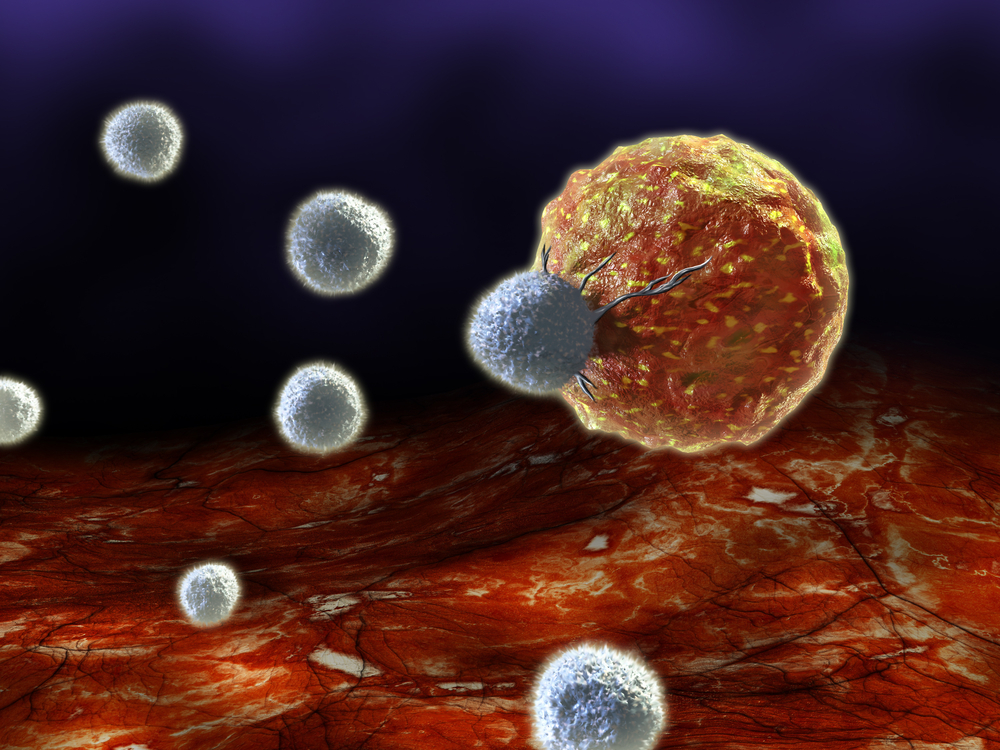Researchers from Helmholtz Zentrum München, Germany, revealed the mechanisms that inhibit natural killer (NK) cells and how this phenomenon can be overcomed in the context of malignant lymphoma. The study published in the European Journal of Immunology was entitled “Critical role of the NKG2D receptor for NK cell-mediated control and immune escape of B-cell lymphoma”.
NK cells are components of the innate immune system that play a crucial role to control infections and tumors, via direct cytotoxicity and cytokine production. Previous studies have demonstrated that NK cells have the potential to fight B lymphomas, a hard to treat type of lymphoma, and are thus considered a potential therapeutic approach against this type of tumor. Nonetheless, it has been shown that NK cells may have a limited anti-tumor activity, however the mechanisms behind these limitations are not well understood.
The research team found that NK cells near the tumor microenvironment had a lower activity, while their cytotoxic function returned to normal upon culture within a healthy environment. These results suggested that tumor-derived factors were responsible for such inactivation of NK cellular function.
Researchers identified two important tumor-derived factors associated with NK cell function inhibition: the inflammatory cytokine (IL-10) and tumor protective mechanisms against NK cells, in particular down regulation of NKG2D ligands, specific surface molecules present in the tumor surface. Lack of NKGD2 ligands meant NK cells could not use this crucial activation mechanism to perform their cytotoxic function. However, researchers observed that at an early stage, NK cells could produce the cytokine interferon-gamma (IFN-γ), crucial to induce further immune responses that sustain the anti-tumor functions, even in the presence of tumor inhibitory mechanisms.
Prof. Dr. Ralph Mocikat, senior author of the study, explained in a news release that therapeutic strategies can be highly improved if NK cells are activated in vitro before their injection in the tumor, overcoming the inhibitory effect of the tumor microenvironment. Moreover an additional injection of IFN-γ or antibodies against IL-10 may further improve immune responses against the tumor.


